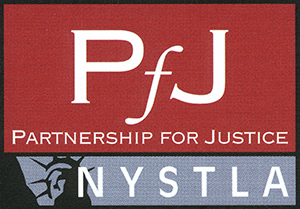What is spousal support? | Oddo & Babat Law
Posted on August 15th, 2017 by Oddo & Babat, P.C.
In domestic relations and family law, spousal support is money or other assets that a court has ordered one former spouse to pay to his or her former partner. As will be discussed below, awarding spousal support can be a very complex matter and calls upon the court to exercise both compassion and fairness when considering this matter. We will begin this brief review by looking at the issues that will be addressed in a spousal support request.
During a marriage one spouse will typically be the major wage earner. Spousal support is financial support awarded to one spouse after a divorce or dissolution of a domestic partnership proceedings. In most cases, the primary wage earner will be required to pay such support to the other spouse. Spousal support differs from alimony in two important ways.
- Alimony is awarded only after the divorce of a couple who were legally married according to the laws of their resident state.
- Spousal support may be awarded during a period of separation prior to, and after, a divorce and/or dissolution of a domestic partnership.
Because state laws are rapidly evolving in response to recent Supreme Court decisions regarding same-sex marriage, couples seeking a dissolution of a same sex marriage should consult a family law and divorce lawyer Bloomington IL relies on who is familiar with the applicable state domestic relations law.
Spousal Support Payments
The dollar amount, duration of payments, and any other conditions regarding spousal support will be determined according to the laws of the state where the divorce or dissolution of a domestic partnership case will be heard. Although there can considerable differences among states, most have followed the guidelines set forth in the Uniform Marriage and Divorce Act.
The guiding principle of law in spousal support cases is that of equity. This means that neither spouse should be penalized economically or socially by the terms of the final divorce order. In general, the Uniform Marriage and Divorce Act suggests that the courts should consider the following factors when determining the terms of spousal support:
- The age, health, and current financial status of the former spouses. This recommendation says that the court should consider the overall ability of each spouse to enter, or remain, in the workforce as well as each spouse’s available resources to remain self-sufficient during the transition to single life.
- The length of time, and the cost of training, the recipient of spousal support will need to become self-supporting. If a spouse lacks the education or vocational training to become self-supporting, the other spouse should be required to pay at least a portion of the costs of such education or training.
- The couple’s standard of living during the marriage and the length of the marriage. It is also suggested that the joint wealth of the couple be divided based on each spouse’s contributions during the marriage, and in a manner that will allow each spouse to maintain a standard of living that is consistent with that previously enjoyed.
- The ability of the support-paying spouse to support the recipient while supporting themselves. Finally, the courts should consider the financial impact of a support order on the paying spouse and any support should not cause undue financial distress to the supporting spouse.
Spousal support can be awarded prior to or after a divorce and may be awarded temporarily or permanently depending on the wisdom of the court. Since family law is undergoing rapid change in this matter, it is vital that both parties obtain legal counsel in order to protect their interests while this issue is considered by the court.
Thanks to our friends and contributors from Pioletti & Pioletti for their insight into spousal support.


 I consulted with David the first time a couple of years ago on a serious matter that affected a very close member of my family. Not expecting a good experience from this serious situation coupled with an attorney consultation, the entire thing surprised me as it was pleasant, professional, and completely successful. We found him clear, direct, generous and extremely knowledgeable throughout the process. I give my very strongest recommendation
I consulted with David the first time a couple of years ago on a serious matter that affected a very close member of my family. Not expecting a good experience from this serious situation coupled with an attorney consultation, the entire thing surprised me as it was pleasant, professional, and completely successful. We found him clear, direct, generous and extremely knowledgeable throughout the process. I give my very strongest recommendation








